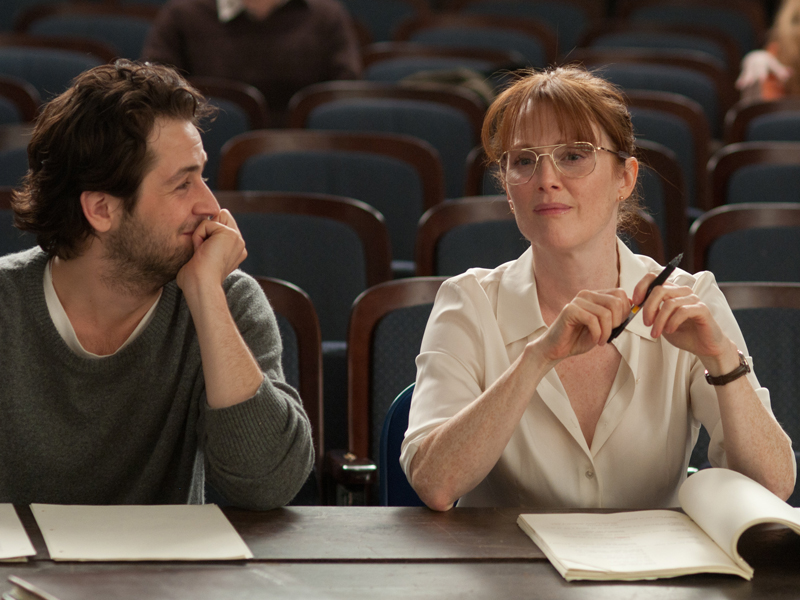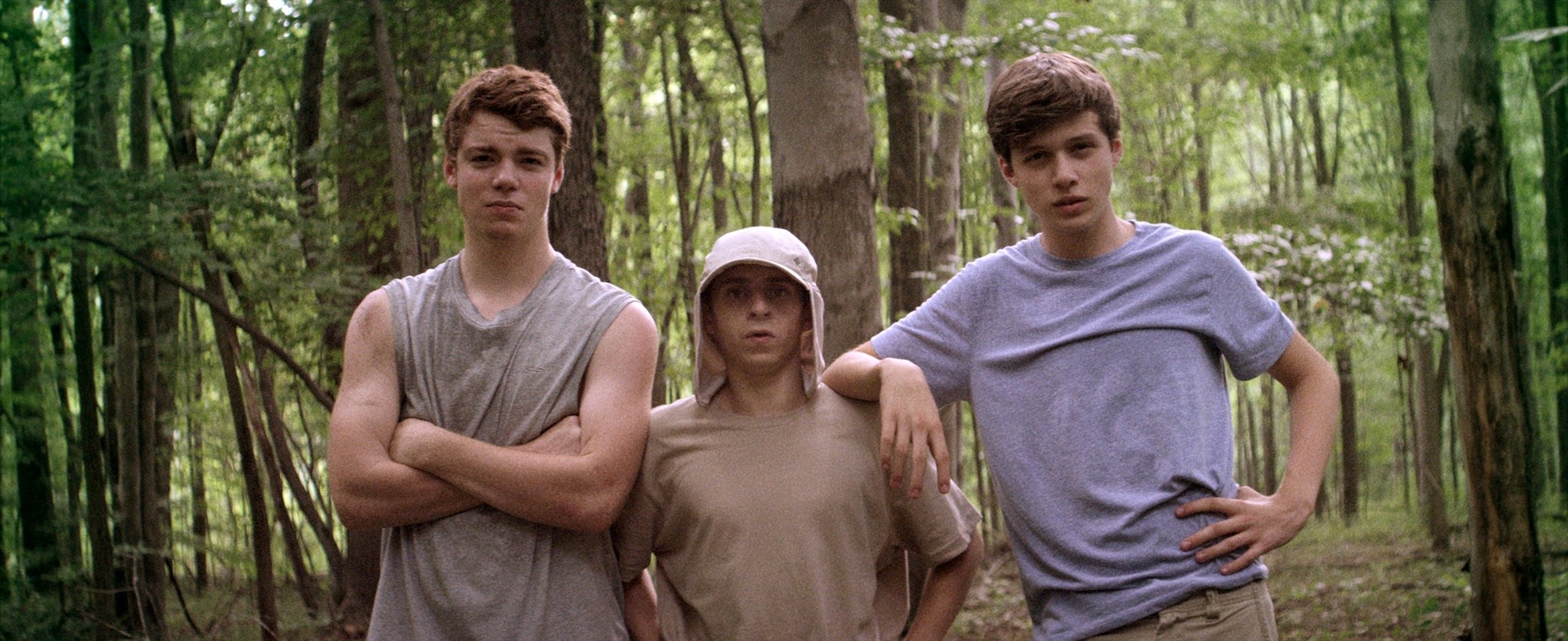 |
| Anybody on this line could be a critic. |
A few weeks back, a couple of items found their way around the Internet that brought movie writers to a tizzy: MarketWatch's puddle-deep insight regarding what film critics won't tell you and Romina Puga's disastrous interview with Jesse Eisenberg during the
Now You See Me press junket.
I'm not going to provide links, because a.) you can find them with a simple Google search; and b.) I don't want to devote more attention to such things.
(By the way, MarketWatch scribes, I've never used the phrase "limns alterity" nor would I read anyone who wrote such snobby garbage. In fact, if I ever use a phrase like that--or come close to attempting to do so--you have permission to introduce my head to a swinging aluminum bat.)
What I will do is provide some insight into what it's like being a movie critic and interviewing notable folks that will a.) be illuminating and b.) not make me look like a total knob. Here we go.
1.)
We are moviegoers just like you. I cannot stress this enough. I've
seen
American Pie more times than any one Hitchcock movie. I can practically recite
Rounders in my sleep. If you and I talked, you might be shocked by what I like. I'm not sitting in my bedroom reading
Film Comment in my Pauline Kael footie pajamas while
Citizen Kane plays for the 30th time that month.
Here's the key difference: I'm more willing to go diving for pearls than you. Somewhere along the line, watching movies became a pursuit for me rather than a hobby. (That's why top 10 lists look so funky and quaint.) You were different, and it's probably a good thing. Do you go through your life feeling like you're in perpetual debt because you haven't seen stuff like
Upstream Color yet? I do, and it sucks hard.
2.)
If we don't connect with the public, we need to pursue a plan B. It's my job, theoretically speaking, to make you feel what I felt while watching a movie. That involves using emotions and language and passion. That is not the work of an elitist or a crank. Read Roger Ebert's memoir and you'll understand why he was so good at his craft: He used movies as a way to write about the human experience. (In fact, the first sentence in this section is attributable to him. Man, I miss that guy.)
 |
| Ladies and gentlemen, Stubby Kaye! |
3.)
Being in the blurb business will crush our souls to dust. The moment you write to land on movie posters is the moment you become the advertising arm of the movie industry. Write how you feel, not because it will look good as part of the coming attraction. When your true self shines through, that's when people will care what you write about.
4.)
We don't hate movies. Why would I, or anyone, pursue something that makes us miserable? (And, yes, I know the reviews for
The Weekender have been scathing lately.) Especially when...
5.)
We don't get paid nearly enough. Right now, what I make yearly from movie writing--an average of two reviews a week--wouldn't pay three months' rent. I love watching films and sharing my opinions about them. I get a buzz doing this that I don't get from writing about anything else, and writing is the great pleasure of my life.
6.)
We don't see everything, because we have other interests--and other jobs. This is more of a royal we. As a freelance writer, I could have a dozen projects going on at any one time. I simply don't have the time to see everything. I wish I could, and I hope the reality changes, but this is the game for now. And, trust me, this is
way better than it used to be.
 |
| Give our best to Morgy, will ya? |
7.)
Professionalism means everything. David Halberstam used to say that his name was his currency, and he was only a Pulitzer Prize winner and one of the finest journalists of the 20th century. That goes double for most of us, especially when it comes to interviews with directors and actors and screenwriters. So, there are some rules we must follow: Be prompt. Be professional. Have good, well-researched questions ready. Let the subject talk and talk. Listen. Don't joke unless you have a sense of the tone of the interview, and even then think twice before unleashing your spiffy comment. Do those things--while saying please and thank you--and everything else is cream cheese.
8.)
There is no director, or film, whom we all drool over. Another person may love Tarantino, another may hate him. You loved
Silver Linings Playbook; I wanted to stab the movie through the throat with my pen. That's the essence of film criticism: trying to convince someone to go on a funky adventure and embrace your logic. If we all followed the pack, then what would be the point?
9.)
Twitter is great for us, but also the worst. My college pal James Brennan made a terrific point, that I'm probably garbling here: Twitter brings out the trolls who are so loud and annoying that open discourse is immediately shut off. I'm talking about gimmicks and flash and "thiz actor is worstest than AIDS" that spells doom for thoughtful writing.
But, man, oh man: the ability to have a platform to express ourselves, to get people to read something? The potential is amazing if we can get through the brush.
10.)
Movies are not something we battle against. We're doing this because we can't wait for the next thrill. We don't know where it comes from or who will provide it. All we know is, we want to be there. And we want to be the first to tell you all about it.







